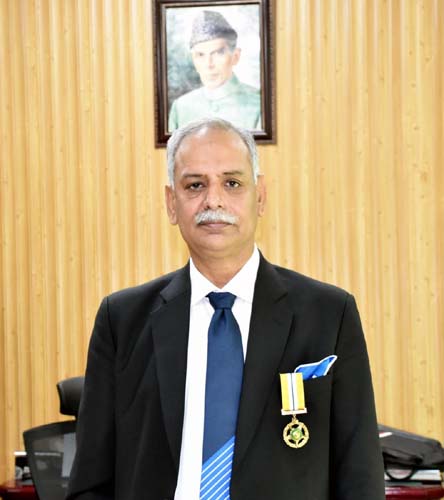China using AI to the benefit of agriculture sector: Vice Chancellor MNSUAM

Multan: Vice Chancellor of Muhammad Nawaz Sharif University of Agriculture Multan (MNSUAM) Asif Ali has said that China was using Artificial Intelligence (AI) to the benefit of the agriculture sector.
In a statement, Asif said that besides China many countries including America, and European nations achieved commendable successes in agriculture sector by utilizing modern technologies especially “Artificial Intelligence” (AI) in Agriculture sector.
He maintained that artificial intelligence could help improve agriculture sector by providing facilities in different ways.
“Such ways included forecast weather changing pattern, temperature, moisture, pace of wind, soil condition, harvesting technology, detection of disease in crops/plants, poor plant nutrition and it could present precise solution of all problems of crops,” he added.
Ali elaborated that when a drone camera flies over a field and take images of fields within few minutes, the images, taken through drone camera, could easily identify the affected areas of the crop. “With the help of AI, a better and timely decision for the treatment of the damaged portions of the field could be taken,” he remarked.
Ali mentioned that the modern spray machines with some particular sensors for detection and elimination of harmful weeds in the agriculture fields, could be introduced by the dint of artificial technology in the country. “In this way, the farmers can apply pesticides at targeted areas,” he contended.
He underlined that it will not only be cost effective but also help in keeping environment safe and secure from excessive use of chemicals.
Ali stressed that the agriculture was backbone of country’s economy. It accounts for nearly 19% of the Gross Domestic Product (GDP). With agro-based products, the sector fetches 80% of the country’s total export earnings. More than 42 percent of the labour force is directly or indirectly engaged with agriculture sector, he stated.
“Agriculture sector offers raw materials to major industries including textile, leather, rice processing, edible oil, sugar and some others. However, this very much important sector is faced with many challenges including poor quality seeds, substandard fertilizers, fake pesticides, attack of different diseases on crops, low fertility of soil, weeds, excessive use of pesticides as well as some other toxic chemicals and above all, conventional ways of agricultural practices,” he noted.





